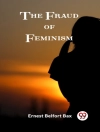In ‘Three Courses and a Dessert, ‘ William Clarke serves a delectable literary feast that artfully intertwines food and culture with the nuances of human relationships. This work is a semi-autobiographical exploration of culinary experiences in a distinctly British context, marked by Clarke’s rich, descriptive prose and wit. The book features a series of interconnected short stories, each representing a course in a meal, offering a nuanced perspective on life’s flavors, ranging from the savory to the bittersweet. Set against the backdrop of a shifting societal landscape, Clarke’s work reflects on themes of identity, nostalgia, and the shared experience of dining, as well as the deeper stories we tell around the table. William Clarke, a noted gastronomic writer, brings his culinary expertise to the forefront in this collection. Drawing inspiration from his travels and personal experiences within diverse food cultures, Clarke crafts a mosaic of narratives that resonate with authenticity and depth. His background as a chef and food journalist enriches the text, allowing him to vividly illustrate the emotional landscapes intertwined with each culinary experience, revealing his belief in food as a means of connection and storytelling. Readers seeking a literary journey that blends humor, reflection, and gastronomy will find ‘Three Courses and a Dessert’ a remarkable and enlightening read. Clarke’s masterful storytelling invites readers to savor each narrative, reminiscent of a well-prepared meal that lingers in the mind long after the last bite. This book is highly recommended for those interested in the intricate relationships between food, culture, and the human experience.
Mengenai Pengarang
William Clarke is often remembered as a British author who made notable contributions to early 19th-century literature, with works that often captured the essence of English life through satire and wit. Clarke’s literary career is highlighted by his significant work, ‘Three Courses and a Dessert, ‘ which was published in 1830 and serves as a delightful ensemble of witty fiction presented in a gastronomical metaphor, as the title suggests. The book is divided into sections that mimic the courses of a meal, each brimming with humorous narratives that reflect the author’s clever storytelling abilities. Clarke’s style often integrated the use of humor to portray and critique the societal norms of his time, and ‘Three Courses and a Dessert’ stands as a testament to his skill in weaving narrative and critique. Although Clarke’s name may not be as widely recognized as some of his contemporaries, his work offers a nuanced exploration of early Victorian society, garnished with a sharp and playful lens. Clarke’s contribution to the literary canon remains a curiosity for those interested in the era’s humor and social commentary.












